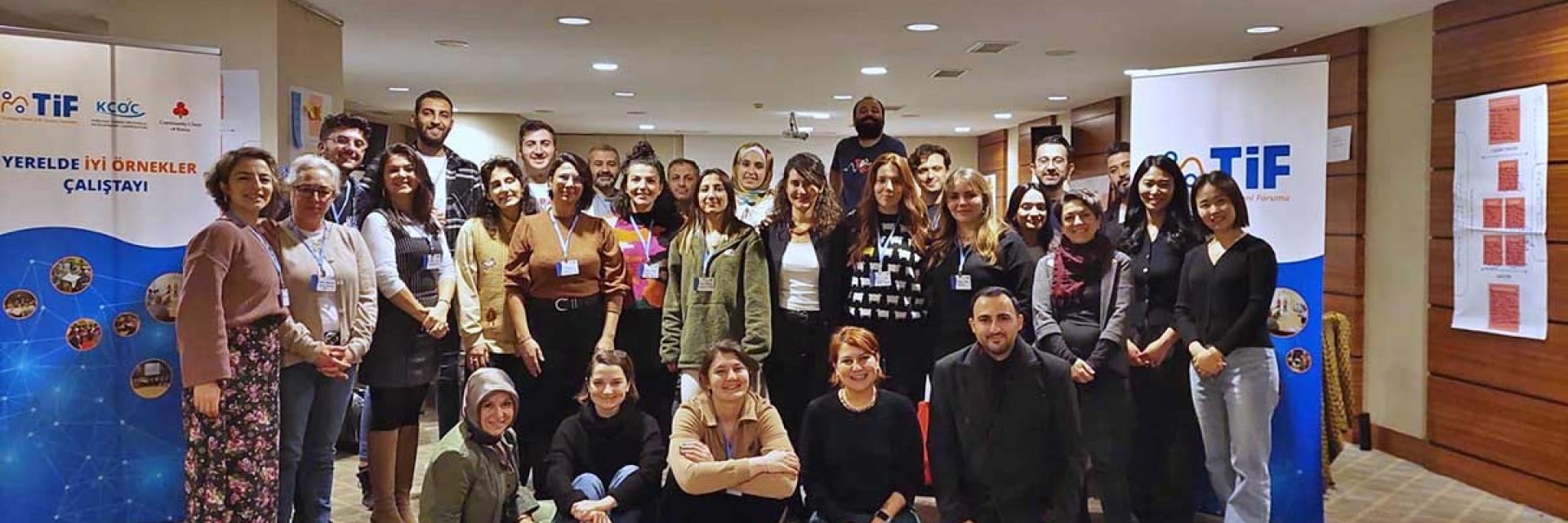
Local Humanitarian Forum, LHF, hosted by the Support to Life (STL) and the Civil Society Development Center (STGM), organized a two-day workshop aimed to enhance the visibility of NGOs operating in the earthquake-affected provinces of Adıyaman, Malatya, Gaziantep, Hatay, and Kahramanmaraş, facilitate their access to resources, and create a platform for experience sharing through a two-day workshop.
The first day of the Local Good Practices Workshop featured a series of panels with the participation of 16 selected organizations recognized as good practices. The second day included public sessions where 123 representatives from international and local NGOs, UN agencies, donor organizations, government institutions, and local communities and initiatives participated.
The first panel of the workshop, titled 'Disaster Response, Civil Society, and Coordination,' included representatives from the Adıyaman Civil Society Solidarity Group, Disaster Psychology Platform, Zero Discrimination Association, and Serinyol El Ele Solidarity Association. The session discussed the significance of local coordination during the disaster process, the importance of being local in times of disaster, and familiarity with the field.
The second panel, titled 'Working with Vulnerable Groups in Emergency Situations,' included representatives from the Disaster Autism Solidarity Network, Malatya Şam Association, Civil Dreams Association, and Bonyan Youth and Development Association. The organizations emphasized the advantage of already working with vulnerable groups- before a disaster, highlighting the importance of immediate intervention during emergencies.
The third panel, 'Women-Youth-Children Studies,' featured representatives from Buradayız Hatay Association, Post-Disaster Women Support Program, Eksi 25 Association, and Kahta Change Assembly (KADİM). The session pointed out the inadequacy of services provided to young groups after disasters. It also emphasized the importance of local organizations being able to provide services such as psychosocial support, basic needs, and health from the initial moments of an earthquake, using pre- existing collaborations.
The final panel, titled 'Collaborations, Partnerships, and Access to Finance,' included representatives from Toprak Ana Women's Cooperative, Solidarity People Association, Urban Development Association (KEGED), and Earthquake Solidarity Association. Focusing on collaborations of local organizations, the panel discussed the instructive yet sometimes challenging nature of working with international organizations. It highlighted the importance of local organizations determining their needs in the post- disaster funding process.
Click to listen to the 'Local Good Practices Workshop' in the podcast series.
About LHF
Local Humanitarian Forum (LHF) was established as an offshoot of Localization Advocacy Group (LAG) in order to help integrate local NGOs/CBOS/CSOs to the newly established OCHA-led humanitarian coordination structure in response to the 6 February earthquake disaster in Turkiye. The OCHA coordination mechanism was launched after the announcement of the Flash Appeal 10 days following the February 6th earthquake. Although LHF was established with the aim of being included in the OCHA system, at this point it is preparing to offer more to its stakeholders.
LHF representatives continue their work in Adıyaman, Hatay, Kahramanmaraş, and Malatya identifying the needs of local organizations. Hosted by Support to Life and STGM operating under the joint secretariat of Support to Life, LHF has 73 members at the national level and a broad communication and stakeholder network at the local level, including NGOs and networks operating in the four most affected provinces by the earthquake.

